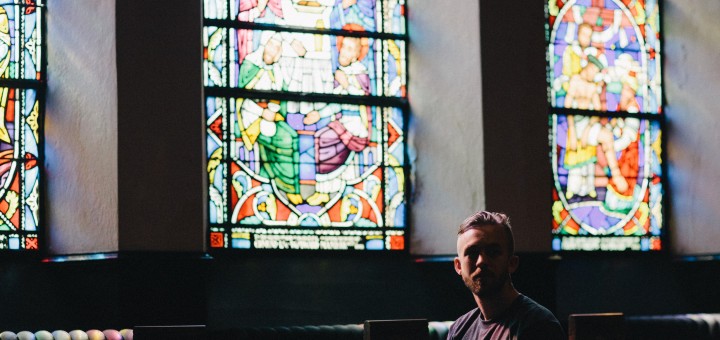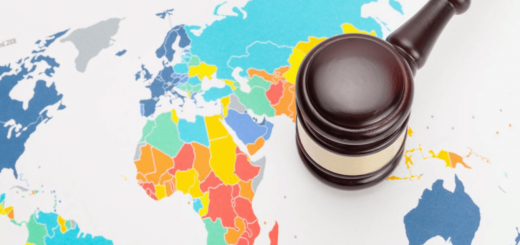Highwood Congregation v Wall : SCC Considers Religious Excommunication Appeal

On November 2 the Supreme Court of Canada heard oral arguments in the matter of Highwood Congregation of the Jehovah’s Witnesses et al v Randy Wall. This primer provides an overview of the case’s factual and legal background ahead of the hearing. During the appeal I live-tweeted most of the proceedings, which can can be viewed on my personal Twitter account, @kkinsinger.
Are lawsuits that challenge the excommunication of an individual from a private religious body justiciable? This is the primary question that the Supreme Court of Canada (SCC) grappled with when it heard oral arguments – including submissions from twelve interveners – on November 2 in Highwood Congregation of the Jehovah’s Witnesses et al v Randy Wall (SCC docket 37273), on appeal from Wall v Judicial Committee of the Highwood Congregation of the Jehovah’s Witnesses, 2016 ABCA 255 [Wall]. Previous rulings by courts at various levels throughout Canada have held that the internal decisions of religious organizations may be subject to judicial review to the extent that they do not conform to the principles of natural justice. In this appeal, however, the SCC will consider whether other factors – namely, whether civil or property rights have been impacted – render such decisions justiciable.
Factual Background
The case arises from a dispute between Randy Wall, a realtor who lives and practices in Calgary, and the Highwood Congregation of the Jehovah’s Witnesses where he regularly worshipped until 2014. In March of that year, Mr. Wall received a letter directing him to appear before a “judicial committee” of elders to address various “alleged wrongdoings” and to receive any needed “spiritual assistance” (Wall, para 4). Prior to this meeting, Mr. Wall’s 15-year-old daughter had been “disfellowshipped” from the same congregation. In order to retain their membership in the Jehovah’s Witnesses, Mr. Wall and his family were compelled to shun their daughter – even though she was a dependent – and they eventually evicted her from their home. (Wall, para 5).
At the meeting with the elders, Mr. Wall admitted to having been drunk on two occasions, including one incident where he also verbally abused his wife. He attributed this to the significant distress his family had suffered since being ordered by the congregation to shun their daughter (Wall, para 5). Shortly after meeting with the elders, Mr. Wall was informed that he too had been “disfellowshipped” and would be shunned by other members of the congregation (including his wife and children) since he had not been “sufficiently repentant” (Wall, para 6).
Mr. Wall appealed the elders’ decision. The appeal committee was comprised of three elders, each from a neighbouring congregation of Jehovah’s Witnesses. At the appeal, Mr. Wall asked the elders to consider the emotional stress that that he and his family had been under since their daughter’s excommunication. His expulsion was upheld, once again on the basis that he had not been “sufficiently repentant” (Wall, para 7). Further appeals by Mr. Wall to the Watch Tower and Bible Tract Society of Canada, the governing body for all Jehovah’s Witnesses congregations, were unsuccessful. Shortly thereafter, Mr. Wall brought forward an originating action for judicial review at the Alberta Court of Queen’s Bench challenging the judicial committee’s decision (Wall, paras 8-9).
The Chambers Judge Finds the Court Has Jurisdiction
The original chambers judge who heard Mr. Wall’s action ordered that a bifurcated hearing be held in order to first determine whether the court even had the jurisdiction hear the application (Wall, para 9). This question over jurisdiction was subsequently heard by another chambers judge. In its submissions, the Highwood Congregation maintained that the court did not have the jurisdiction to hear an appeal arising from a religious body (Wall, para 10).
In response, Mr. Wall argued that the judicial committee’s decision to expel him had led to him losing a significant portion of his business as a realtor, since about half of his client base consisted of other members of the Jehovah’s Witnesses who were now compelled to shun him (Wall, para 10). Since his civil and property rights had been impacted by this “disfellowship,” he asserted that the court had the jurisdiction to hear his action. The chambers judge agreed, additionally expressing concern over whether the appeal process had sufficiently adhered to the principles of natural justice (Wall, para 11).
Majority at the Court of Appeal Upholds the Lower Court’s Ruling
The Highwood Congregation appealed the Court of Queen’s Bench decision to the Alberta Court of Appeal, where the reasons of the majority were delivered by Justices Paperny and Rowbotham. They began their analysis by highlighting the SCC’s previous ruling in the case of Lakeside Colony of Hutterian Brethren v Hofer, [1992] 3 SCR 165 [Hofer], in which a closed religious colony applied to the courts to evict several former members who had been expelled from the community. In Hofer, Justice Gonthier had emphasized that courts will generally be hesitant to review a membership decision in a voluntary association – especially if that association is religious – but will do so if the decision impacts civil or property rights (Hofer, para 6).
Additionally, the majority highlighted a series of Canadian decisions since Hofer where courts had imported administrative law principles to what would otherwise be matters of private law. They specifically pointed to the now well-established rule that courts will exert jurisdiction over internal membership matters “when there has been a breach of the rules of natural justice or the complainant has exhausted the organization’s internal processes” (Wall, para 16). Applying this two-part test to the facts raised by Mr. Wall, Justices Paperny and Rowbotham found that:
The respondent’s application raises numerous complaints regarding the process used by the appellants. He contends that he was not provided with particulars of the allegations against him or the process that he would face. He was not advised whether he could retain legal counsel or whether there would be a record of the proceedings. He also contends that he is entitled to written reasons of the decisions of the Judicial Committee and the Appeal Committee. On the basis of these allegations the Court of Queen’s Bench has jurisdiction to hear the application (Wall, para 22).
The majority next considered the finding of the chambers judge that the decision of the judicial committee had had an impact on Mr. Wall’s business as a realtor. On appeal, the Highwood Congregation had argued that this finding was unreasonable “because ‘not talking to someone and not doing business with them’ is not a civil right” (Wall, para 24). In response, Mr. Wall maintained that the economic loss he had suffered was a direct result of the judicial committee’s decision. Ultimately, however, Justice Paperny and Rowbotham concluded that “whether the allegation can be proved is a matter for the judge who hears the ultimate application for judicial review” (Wall, para 25). The majority accordingly dismissed the appeal.
Justice Wakeling Dissents on Constitutional Grounds
In response to the reasons of Justices Paperny and Rowbotham, Justice Wakeling grounded his comparatively lengthy dissent in the constitutional principles enshrined in the Charter. Unlike public decision-makers, he asserted, private actors are not subject to judicial review. Applying this general legal principle to the facts of the case, Justice Wakeling flatly determined that “The Highwood Congregation is not a public actor. It is a private actor and is not subject to judicial review. It has no statutory foundation of any kind. The Highwood Congregation makes no decisions that have any consequences for members of the public” (Wall, para 41).
Noting that the Highwood Congregation had not been incorporated or received any kind of legal status, Justice Wakeling found that it was nothing more than “a group of people who associate together because they share common religious values.” In support of this proposition, he offered a colourful illustration:
The Highwood Congregation is like a bridge club whose members love bridge and meet on a regular basis to play the game and enjoy each other’s company. The decisions the bridge club makes – when and where to meet, the obligations of the host, the duration of a session, who may be invited as a guest when a regular is unavailable – are not enforceable promises and have limited, if any, impact outside its small circle (Wall, para 72).
Justice Wakeling was confident that on this point the inquiry should end. Still, in the event that it be found that he had erred in his reasoning, he offered further analysis on whether Mr. Wall had presented a justiciable interest. With regard to the facts of the case, Justice Wakeling found that a justiciable issue would have two components: “the first focuses on whether a person asks a court to award a remedy to enforce a legal interest that the person alleges another has infringed. The second element insists that this legal issue arises in the context of an actual controversy, the outcome of which has practical consequences for the disputants or the community or both” (Wall, para 80).
In considering whether Mr. Wall had satisfied these two components, Justice Wakeling also turned to the SCC’s previous ruling in Hofer. He noted that in that case the plaintiff colony had conceded that a civil court would have jurisdiction to consider whether a religious body had acted in accordance with the principles of fundamental justice. This, he postulated, was a concession that may no longer be applicable in light of subsequent Charter jurisprudence:
There is good reason to conclude that any membership decision of a religious association is immune from judicial review for constitutional reasons. As well, one may reasonably assert that the members of the colony, by signing the articles of association, agreed to accept the colony’s membership decision as final and binding and did not regard the articles of association as the depository of externally enforceable promises (Wall, para 105).
Nevertheless, Justice Wakeling emphasized that the SCC had not considered any Charter freedom of religion claims in Hofer. Consequently, he found, “there is no definitive judgment from the [SCC] opining on the constitutional status of religious associations’ membership decisions” (Wall, para 110). On this basis, Justice Wakeling thus concluded that “religious associations – and more importantly, the constituent members – have the constitutional right to select their own members – those with whom they will worship” (Wall, para 111).
Anticipating the Supreme Court Hearing
Justice Wakeling’s reasons almost appear to anticipate a subsequent consideration of his dissent by the SCC. In particular, his analysis of whether religious membership decisions should be subject to judicial review injects a constitutional dimension into the case that had previously not been present. Indeed, the novelty of Justice Wakeling’s opinion may be part of the reason that the SCC decided to grant leave to appeal to the Highwood Congregation. The weight of this appeal does not appear to have been lost on the twelve groups that will be intervening, many of whom represent various religious associations and will be, understandably, raising various freedom of religion and association concerns.








Join the conversation